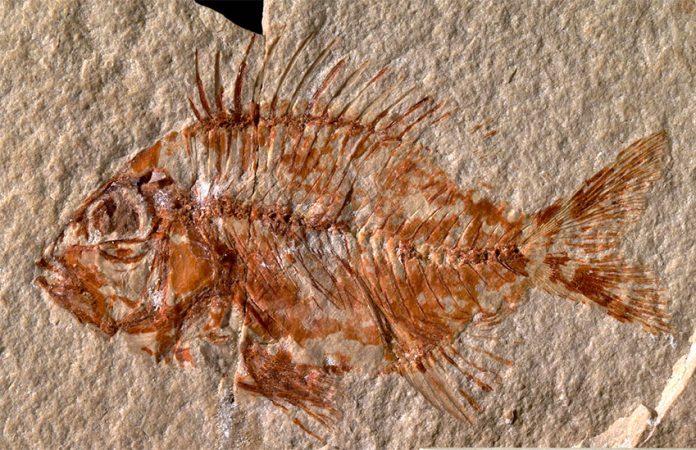The National Autonomous University (UNAM) has announced the discovery in Chiapas of a fossil of a previously unknown fish species that lived at a time when dinosaurs roamed the Earth.
Paleontologists from the university’s Institute of Geology discovered the approximately 95-million-year-old fossil in 2018 in a quarry in Ocozocoautla de Espinosa, located about 30 kilometers from the state capital Tuxtla Gutiérrez.
UNAM’s social communication department said the main characteristic of the fish is its “numerous spines on its dorsal and anal fins.”
UNAM paleontologist Kleyton Magno Cantalice Severiano published a description of the previously unknown fish in the British journal Papers in Palaeontology.
He and other experts named it Choichix alvaradoi, which is derived from two Tzotzil Mayan words and the name of a widely-respected Institute of Geology academic.
Choichix is a portmanteau of the words choy, meaning fish, and ch´ix, meaning spines. Tzotzil Mayan is spoken in the area where the fossil was found.
Alvaradoi refers to Jesús Alvarado Ortega, a fish fossil expert who has helped train many other paleontologists.
Cantalice said the Choichix alvaradoi belongs to a large group of spiny-finned fish known as the Acanthopterygii superorder, which includes species commonly eaten today such as bream, bass and snapper.
“… Ours is one of the oldest [of that group]. We discovered that it’s from a new [sub]group of fish because of the number of spines on its dorsal fin – 13,” he said.
Unlike modern-day spiny-finned fishes, the Choichix alvaradoi didn’t have ventral, or pelvic, fins. That’s because it was a primitive fish, Cantalice said, noting that that particular evolutionary trait emerged later.
The paleontologist said that other fossils of ancient fish as well as others of plants, mollusks and crustaceans from the Cretaceous period have been found in the same area.
“We could say that this [fish] species lived alongside dinosaurs, although that doesn’t mean there are … [dinosaur] fossils in the quarry, but the age in which they lived is the same. It’s a quarry where there are regular collections [of fossils], the specimens are very well preserved and what has been collected the most there are fish fossils,” he said.
Cantalice said similar fossils have been found in other countries, citing Lebanon as one example. However, none match that of the Choichix alvaradoi found in Chiapas, which is now part of UNAM’s national collection of fish fossils.
The species is believed to be the most primitive of the the spiny-finned fishes, he said, which would mean that the Acanthopterygii superorder might have originated in the land now known as Mexico.
It has previously been thought such fish originated in the Tethys Ocean, which existed during much of the Mesozoic Era, a period lasting from about 252 million to 66 million years ago that is also known as the Age of Reptiles.
“It was previously believed that the fish originated there and migrated to this part of America. However, we now see that the oldest, most primitive fish were in this region and subsequently diversified toward the Tethys Sea,” Cantalice said.
Mexico News Daily
